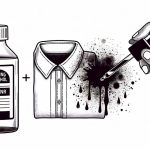So, you've accidentally gotten super glue on your metal surface and now you're wondering how to remove it without acetone.
No need to worry! We've got you covered with 5 effective methods to help you tackle this issue like a pro. These techniques are simple, safe, and perfect for those who want to master the art of removing super glue from metal.
Whether it's using warm soapy water, soaking with vinegar, applying lemon juice, using rubbing alcohol, or creating a baking soda paste, we've got the solutions you need.
With these methods, you'll be able to say goodbye to that stubborn super glue in no time.
Key Takeaways
- The warm soapy water method involves soaking the glued metal in warm soapy water and gently scrubbing the affected area.
- The vinegar soak technique requires submerging the metal item in white vinegar and repeating the soaking process until the glue is completely dissolved.
- The lemon juice solution involves applying lemon juice to the affected area, allowing it to sit for 10-15 minutes, and then peeling or scraping off the softened glue.
- The rubbing alcohol application method requires dabbing the affected area with rubbing alcohol, allowing it to sit for a few minutes, and then rubbing or scraping off the softened super glue.
Warm Soapy Water Method
You can start removing super glue from metal without acetone by soaking the affected area in warm soapy water. This method is suitable for most metal surfaces, but it's essential to check for compatibility with the specific type of metal.
Once you've confirmed compatibility, fill a bowl with warm water and add a few drops of dish soap. Submerge the glued metal in the soapy water and let it soak for at least 30 minutes. The warm water and soap help break down the adhesive, making it easier to remove from the metal surface.
After soaking, use a soft-bristled brush or cloth to gently scrub the affected area. This can help loosen the glue from the metal. If the glue hasn't fully softened, you can repeat the soaking process until the adhesive is sufficiently loosened.
Once the glue is removed, thoroughly dry the metal surface before using it. The drying time may vary depending on the type of metal and the amount of water used during the process.
This method provides a non-toxic and metal-friendly approach to removing super glue without the use of acetone.
Vinegar Soak Technique
Starting with a small container, begin by filling it with white vinegar. Submerge the metal item with the super glue into the vinegar, ensuring it's completely covered. Allow the item to soak for at least one hour, but for best results, leave it overnight.
After soaking, use a soft-bristled brush or cloth to gently scrub the area and remove the softened glue. If needed, repeat the soaking process until the glue is completely dissolved.
If you don't have white vinegar on hand, there are other vinegar alternatives that can be used, such as apple cider vinegar. These alternatives can also effectively soften super glue without causing damage to the metal.
Vinegar is known for being a metal-friendly solvent, making it a safe choice for removing super glue from metal surfaces. It's a gentle yet effective option that won't harm the metal while still breaking down the adhesive properties of the super glue. This method is particularly useful for delicate metal items that may be sensitive to harsh chemicals.
Lemon Juice Solution
To remove super glue from metal without acetone, begin by applying a lemon juice solution to the affected area using a soft cloth or sponge. Lemon juice, being an acidic substance, serves as a natural solvent alternative that can help break down the adhesive properties of super glue.
Here's a simple guide to using lemon juice to remove super glue from metal:
- Saturate a soft cloth or sponge with fresh lemon juice.
- Gently dab the affected area with the lemon juice-soaked cloth or sponge, ensuring the glue is thoroughly covered.
- Allow the lemon juice to sit on the glue for 10-15 minutes to give it time to penetrate and weaken the bond.
After following these steps, you can then attempt to gently peel or scrape off the softened glue using a plastic scraper or your fingernail. Remember to proceed with caution to avoid damaging the metal surface. If needed, repeat the application process until the super glue is completely removed.
Rubbing Alcohol Application
Applying rubbing alcohol to the affected area can effectively dissolve super glue from metal surfaces without the need for acetone. Rubbing alcohol, also known as isopropyl alcohol, is a versatile solvent that can help loosen and remove super glue from metal. When using alternative solvents like rubbing alcohol, it's important to take protective measures to ensure safety and prevent damage to the metal surface. Here's a simple guide to using rubbing alcohol to remove super glue from metal:
| Steps | Instructions |
|---|---|
| Step 1 | Dampen a cotton ball or swab with rubbing alcohol. |
| Step 2 | Gently dab the affected area with the alcohol-soaked cotton. |
| Step 3 | Allow the rubbing alcohol to sit on the super glue for a few minutes to start breaking down the adhesive. |
| Step 4 | Carefully rub or scrape off the softened super glue with a soft cloth or plastic scraper. |
When using rubbing alcohol, ensure proper ventilation and avoid contact with open flames due to its flammable nature. By following these steps and taking necessary precautions, you can effectively remove super glue from metal using rubbing alcohol.
Baking Soda Paste Method
First, mix a small amount of baking soda with water to create a paste for removing super glue from metal surfaces without acetone. This method is effective and gentle on the metal, making it a great alternative for those seeking to avoid acetone.
Here's how to use the baking soda paste method:
- Prepare the Paste: In a small bowl, combine a small amount of baking soda with water to form a thick paste. The paste should be spreadable but not too runny.
- Apply the Paste: Use a cotton swab or a soft cloth to apply the baking soda paste directly onto the super glue on the metal surface. Ensure that the affected area is completely covered with the paste.
- Allow Time for Chemical Reactions: Let the paste sit on the super glue for at least 15 minutes to allow for chemical reactions to occur. This will help weaken the bond between the super glue and the metal.
The abrasive nature of the baking soda, combined with the chemical reactions it triggers, helps to gradually loosen the super glue from the metal surface, making it easier to remove without causing damage.
Frequently Asked Questions
Can I Use These Methods to Remove Super Glue From Delicate Metal Surfaces, Such as Jewelry or Decorative Items?
You can use natural solvents like vinegar or lemon juice to remove super glue from delicate metal surfaces. Protect the delicate items by testing the solvent on a small area first. Avoid harsh chemicals to prevent damage.
Will Any of These Methods Cause Damage to the Metal Surface or Leave Behind a Residue?
Using these methods on delicate metal surfaces like jewelry may risk potential damage or leave residue. Consider testing in a small, inconspicuous area first. Proceed with caution and gentle techniques to avoid harm.
How Long Should I Let the Metal Soak in the Vinegar or Lemon Juice Solution Before Attempting to Remove the Super Glue?
Let the metal soak in vinegar or lemon juice for at least 30 minutes before attempting to remove the super glue. This ensures effectiveness. If using alternative solvents, exercise caution to prevent damage or residue.
Can I Use These Methods to Remove Super Glue From Painted Metal Surfaces?
Yes, you can use vinegar or lemon juice on painted metal, but be cautious. Precautions for painted metal include testing in a small area and avoiding prolonged soaking to prevent potential surface damage.
Are There Any Safety Precautions I Should Take When Using Rubbing Alcohol or Baking Soda to Remove Super Glue From Metal?
When using rubbing alcohol or baking soda to remove super glue from metal, take safety precautions. Ventilate the area, wear gloves, and avoid contact with skin or eyes. Preventive measures reduce potential risks. Consider alternative methods for safety.
- Tetron Fabric for Marine Applications: Durability and Use Cases - June 18, 2025
- Tetron Fabric for Outdoor Furniture: Weather Resistance and Care - June 18, 2025
- Tetron Fabric for Wall Coverings: Style and Application Tips - June 18, 2025







